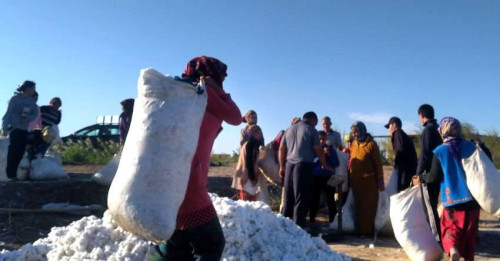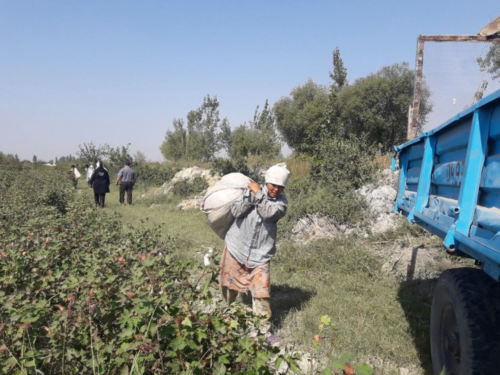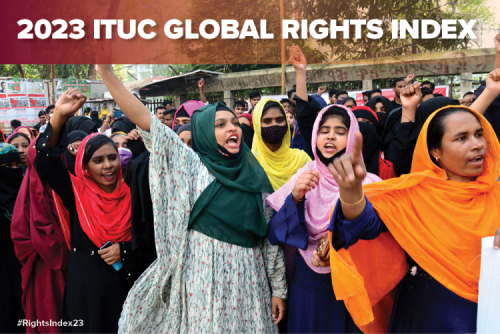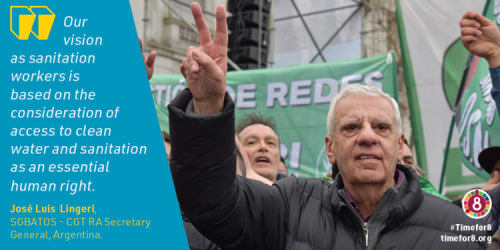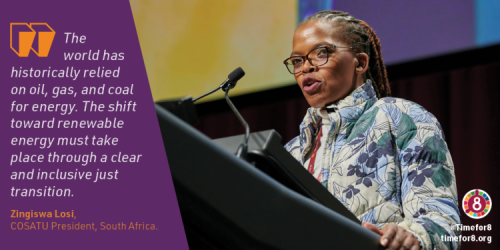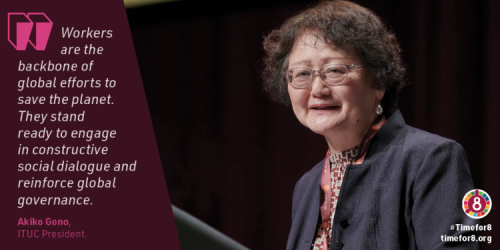Countries
Solidarity campaigns
13 August 2024
Georgia: Support striking workers at Evolution Gaming
5 June 2023
Georgia: Justice for Wolt couriers
10 May 2023
Belarus: Trade union activity is not extremism!
2 November 2019
Kazakhstan: Trade unionist Erlan Baltabay imprisoned - again!
19 November 2018
Kazakhstan: Stop repression and physical attacks on leaders of independent unions; hands off Larisa Kharkova, Erlan Baltabai and Dmitriy Senyavskiy
18 April 2018
MALOKHAT STILL NEEDS YOUR HELP
News
22 September, 2023 / turkmenistan
Teachers and Doctors in Turkmenistan Exempt from Cotton Picking – Could This Be Permanent?
Teachers and doctors in three regions of Turkmenistan have been freed from the obligation to go and pick cotton or pay money to hire workers in their stead. This may be connected with the upcoming visits to Turkmenistan of a monitoring mission of the International Labor Organization (ILO) and representatives of the U.S. Department of Labor. It is to be hoped that the exemption of this category of public sector workers from cotton picking is not a temporary measure because of the important visitors, but the first step on the road towards eradicating forced labor in Turkmenistan.
05 September, 2023 / uzbekistan
COMPLAINT FILED AGAINST EBRD: LABOR RIGHTS VIOLATIONS, LAND GRABS AND EXPLOITATION AT COTTON PRODUCER INDORAMA AGRO IN UZBEKISTAN
Uzbek Forum has interviewed dozens of workers and farmers who have reported the loss of livelihoods caused by illegal land confiscations, lack of access to land, mass redundancies and abuse of labor contracts, as well as attempts to dismantle the trade union. Furthermore, farmers contracted to deliver cotton to Indorama Agro complain of delayed payments for the cotton they have delivered and exploitative contracts that include no minimum price for their cotton. Workers and stakeholders who speak out, risk retaliation and intimidation. Following interviews with Uzbek Forum monitors, farmers and workers have been interrogated by security service officials and warned against speaking to “international organizations”.
06 July, 2023 / International
Ten years of workers’ rights under attack: 2023 ITUC Global Rights Index
The 10th edition of the authoritative Global Rights Index shows that the global cost-of-living crisis has been met with a crackdown on the rights of working people in every region of the world.
06 July, 2023 / International
HLPF 2023: Access to water and sanitation is a human right
“Our vision as sanitation workers is based on the consideration of access to clean water and sanitation as an essential human right.” J.L. Lingeri SGBASTOS / CGT RA Argentina
06 July, 2023 / International
HLPF 2023: We need a global shift towards renewable energy
"The shift toward renewable energy must take place through a clear and inclusive just transition." Zingiswa Losi, COSATU South Africa.
06 July, 2023 / International
HLPF 2023: Sustainable cities need workers to take care of them
"Social dialogue enables workers to participate in just transition plans of their cities that are good for people and the environment." Peggy Hessen Følsvik, LO Norway
06 July, 2023 / International
HLPF 2023: The clock is ticking for a new social contract based on SDG 8 and social dialogue
"Workers are the backbone of global efforts to save the planet." Akiko Gono, ITUC.
12 June, 2023 / turkmenistan
New Independent Reporting Reveals Ongoing Systematic Forced Labor and Corruption in Turkmenistan Cotton Harvest
ILO to Review Turkmenistan for Compliance with International Law Prohibiting Forced Labor
12 May, 2023 / kyrgyzstan
UNCONSTITUTIONAL PROVISIONS OF THE LAW ON NGOS SHOULD BE ABOLISHED.
On 17 May 2023, at 9:30 a.m., a session of the Constitutional Court of the KR will be held, at which the petition of the Human Rights Movement "Bir Duino - Kyrgyzstan" will be considered on recognition of paragraphs 2 and 3 of Article 17 of the Law of the KR on Non-Profit Organizations as contradicting Articles 2 (Part 2), 8 (Part 1), 23 (Parts 1, 2, 3, 4, 5), 32 ( Parts 1, 2), 36 of the Constitution of the KR.Article 36 of the Constitution of the KR guarantees everyone the right to freedom of association, which is the basic value of society and the State. This right may be restricted only for the purpose of protecting national security, public order, public health and morals, and protecting the rights and freedoms of people.
17 April, 2023 / kazakhstan

